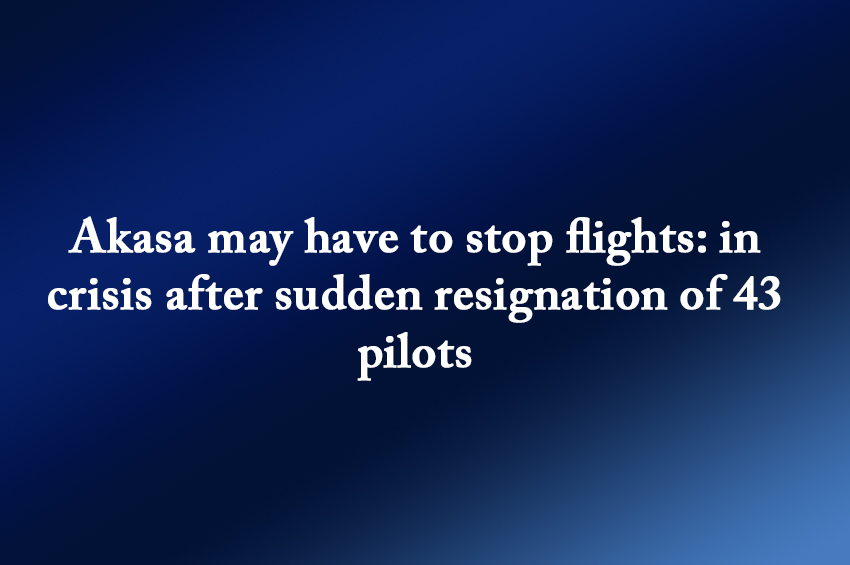Winning Bizness Sports Desk
Mumbai. It seems that bad days are going to prevail for Indian aviation companies. One company after another comes into trouble. Now Akasa Air is in trouble after the resignation of 43 pilots and may have to close its operations. The company had to cancel 24 flights every day in September due to the sudden resignation of pilots. The airline gave this information in the Delhi High Court. The airline's lawyer told Justice Manmeet Pritam Singh Arora, 'As the pilots did not complete the mandatory notice period, Akasa Air was forced to cancel several flights every day. The notice period for First Officers is 6 months and for Captains is 1 year. The airline has requested the court to give aviation regulator Directorate General of Civil Aviation (DGCA) the authority to enforce the mandatory notice period rules. Akasa Air was launched on 7 August 2022.
Airline demanding about Rs 22 crore as compensation
Another report said that the pilots have joined Akasa Air's rival airline. It also said that an official of Akasa Air had written a letter to the rival group expressing concern and calling it unethical. notably, Akasa operates 120 flights a day. 600-700 flights may be canceled this month. Even in August it had to cancel 700 flights. Akasa's market share declined to 4.2% in August. It was 4.2% in July. The airline is demanding punitive action against pilots who have left without completing their contractual notice period. Along with this, it is demanding about Rs 22 crore as compensation for the loss of revenue due to cancellation of flights. On the other hand, another report says that Akasa has been given the green signal for international flights, but it is awaiting approvals from the countries in which it wants to operate flights. Currently the airline operates only on domestic routes.
Flight operation on international routes more profitable
International routes are often considered more profitable due to less competition. Earlier, if any airline in India wanted to start international flights, it was mandatory for it to have 20 aircraft in its fleet and 5 years of experience. However, in the year 2016, India's civil aviation policy was changed and the rule of 5 years of experience was removed. This opened the gates for new airlines to enter the international market.


